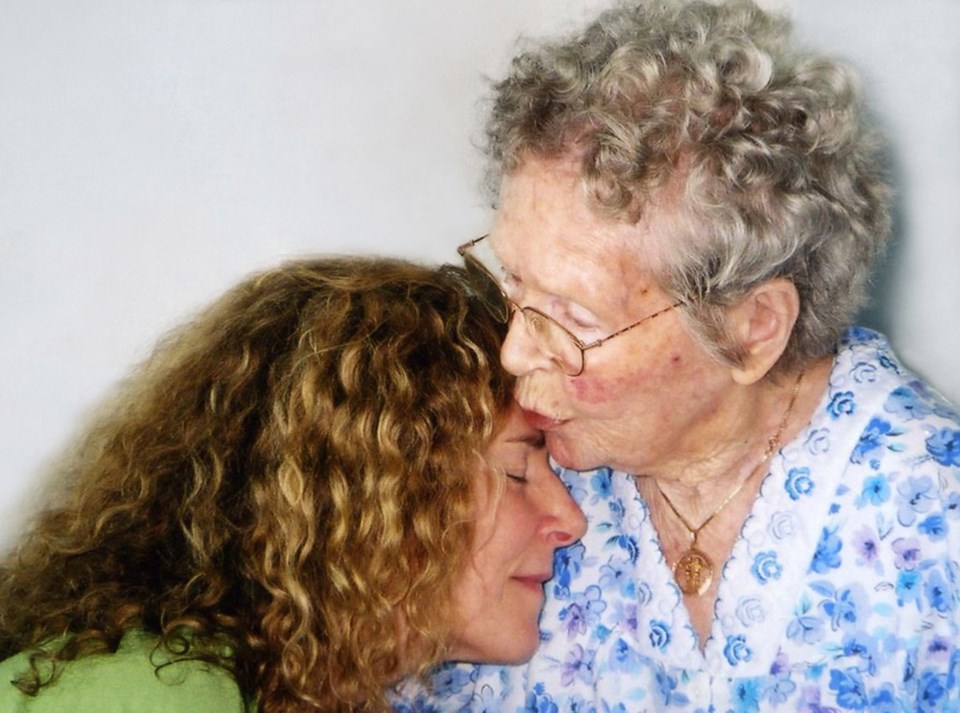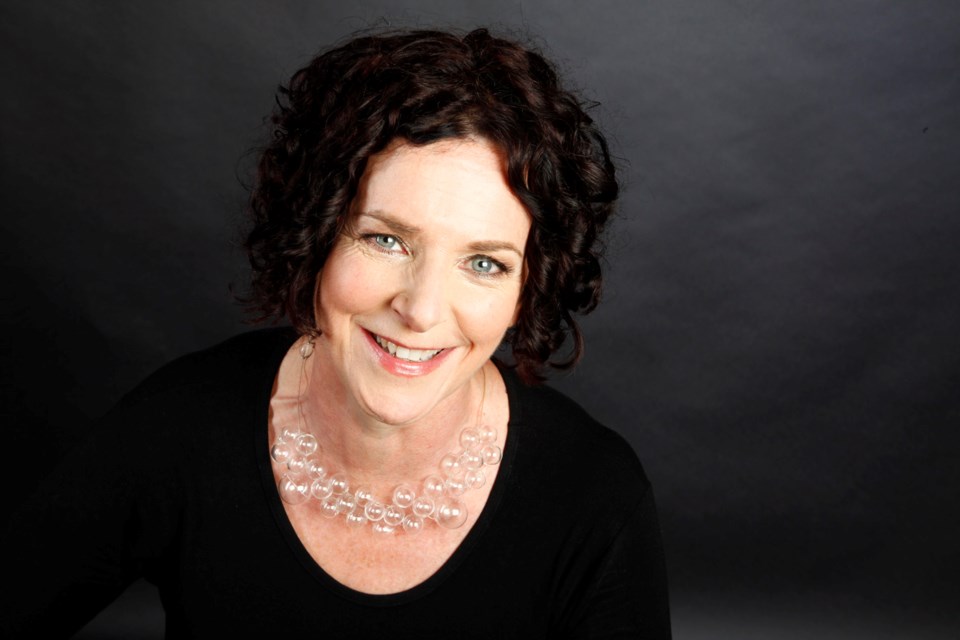When a loved one is delusional, it’s human nature to try to ground them in reality. But author Cathie Borrie learned the hard way that’s not always the best approach. For seven years, the North Vancouver resident cared for her mother, Joan, who was diagnosed with dementia and also suffered from Parkinson’s disease. Instead of trying to pull her mother back into our reality, Borrie followed her mother into her world. She taped their conversations, which often included Joan’s fantastical observations, then wove Joan’s voice through her memoir, The Long Hello. Her book counters the master narrative of loving someone with dementia and the grief over losing the person that existed before the illness. Instead, Borrie chronicles the way dementia changed their relationship, and she’s planning to share some of her insight at an upcoming talk at the McGill library branch on May 7. Borrie hopes her talk will draw people with dementia and their caregivers. Borrie plans to share her way of communicating and maintaining relationships with loved ones with dementia. It’s going to be happy, funny and moving, we’re told, and there may even be singing and dancing.
Q&A: Can you tell me when you understood your mom’s illness was serious, that she wasn’t simply forgetting things?
It just becomes cumulative. There are too many things that aren’t going where they used to go, and a person’s personality isn’t quite the way it was either. It’s not a matter of losing your keys a hundred times. It’s … not recognizing a store you’ve gone to for years, that kind of bigger thing is what really alerts you.
What was it like being her primary caregiver?
Loving people who are going through difficult times is very difficult to bear witness to, and it can be tiring, always being on call to be a care partner for somebody. But that’s true whether you’ve got a kid who’s sick or a teenager having problems. Those are just the by-products of being a human being and loving people. That kind of goes with the turf. You have the days that aren’t so good and the days that are good. It’s just a matter of whether you’re going to step to the plate or not.
I ended up taping our conversations because I couldn’t believe how many fascinating things she was saying, poetic and funny, insightful, that were different from the way she used to talk, and they were so striking, I ended up taping them, thank goodness, because in the book, her voice runs through pretty much every page.
What kinds of things was she saying?
I said, “How are you, mom, today?”
“Well, Cathie was up here today, and she said to me, ‘Mom, I’m not going to offer to give them my shadow,’” and I said to her, “Wow, that is so interesting, and where was this?”
And she said, “Somewhere on the other side of here.”
So, how do you describe that? Sort of Alice in Wonderland-ish but beautiful. She was saying things and thinking things in a way I didn’t have access to that I thought were pretty gorgeous.
I understand you almost created a fictional world for your mother to help comfort her?
Other way around. I would put it slightly differently, that wherever she was – for example, on the other side of here – I learned at great pain, because we want to lead people and tell them what to do, and correct them. That’s just human nature – it doesn’t work, it does not work. This I learned – I didn’t always get it right, I wish I did – that I was going to follow her lead. She was somewhere in a place I didn’t understand, just way out, then my job was to follow her moment by moment in the place she was. It sounds like a fictional world, … but I didn’t create it. My job was to basically provide her with a blank canvas and let her redefine her new way, and my job was to follow that.
So you sort of followed her into that world.
I sure tried to.
And what was that like?
Great (laughter). Obviously there are times when a person is not well, and things are very bad, and very trying and sad for the person with dementia and, of course, the care partner. That’s really tricky. And that goes with the turf, but I think the take home message for me was when I was patient enough and egoless enough to follow her steps, it got to be pretty darn interesting. I said to her one day, “It’s a bit cold in here, mom. Should I put the fire on?” And she said, “Oh yes, we have to have a little fire in here, and they have to have a fire in there. You can’t have no fire. They dance by the fire.”
And I’m thinking: I want to be there dancing by their fire. I’m picturing little fairies. So there was lots of beauty against the background of many days that were not happy.
That’s interesting.
The mistake I made, and many do, is to try to get that person where they were before or grieve how they were and wish they were that person and wish they were always going to be recognized – and there’s no point. You might as well give it up. It’s much easier not to do that, and it’s much more honouring not to do that.

Did you go in at first trying to do that?
Oh sure, lots of times. It’s so human nature. One day we were driving by a Shoppers Drug Mart, and she said, “Oh look at that lovely new building,” and my initial response (was), “No, that’s not a new building. That’s been there for years.”
And then, of course, I look at her face, and she’s crestfallen, humiliated. And I thought: What am I doing? What was the purpose of that? None. Selfish and stupid. So, you go moment by moment, and I think we do that in all relationships, wishing we hadn’t said things.
If you had one piece of advice for people who might be caring for loved ones with dementia or Alzheimer’s, what would you say?
Give up the ego, give up the self. Don’t’ worry if people don’t know who you are. You’ve had your whole lifetime to be who you are. Now you can be somebody new.
Follow instead of trying to get things the way they were. They will never go back that way. That’s the most honouring thing you can do.
Library event:
- Who: Cathie Borrie, author of The Long Hello.
- What: Talk at the McGill library branch.
- Where: 4595 Albert St.
- When: Thursday, May 7, 7 to 8 p.m.
- Register in person at the library, online or call 604-299-8955.



